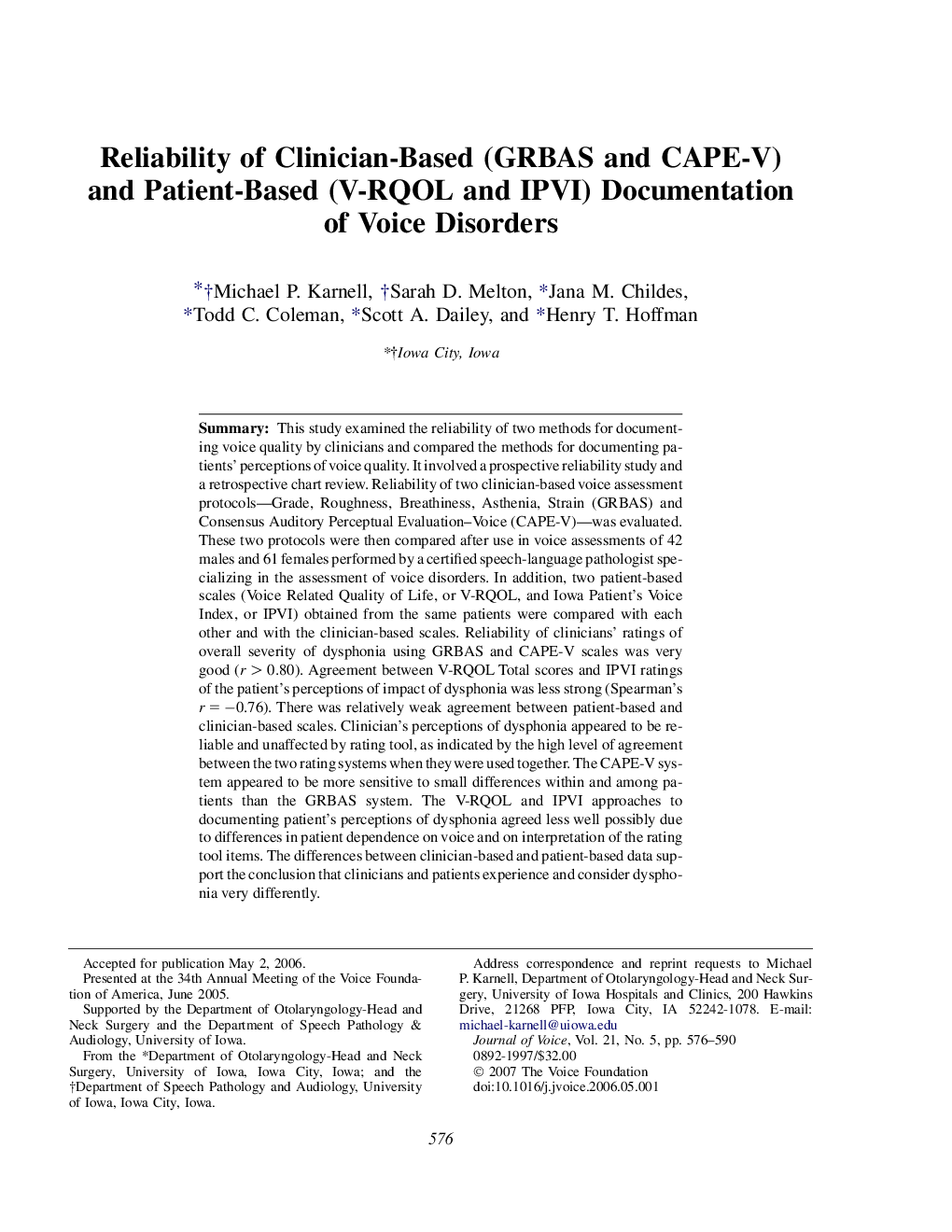| کد مقاله | کد نشریه | سال انتشار | مقاله انگلیسی | نسخه تمام متن |
|---|---|---|---|---|
| 1102724 | 953618 | 2007 | 15 صفحه PDF | دانلود رایگان |

SummaryThis study examined the reliability of two methods for documenting voice quality by clinicians and compared the methods for documenting patients' perceptions of voice quality. It involved a prospective reliability study and a retrospective chart review. Reliability of two clinician-based voice assessment protocols—Grade, Roughness, Breathiness, Asthenia, Strain (GRBAS) and Consensus Auditory Perceptual Evaluation–Voice (CAPE-V)—was evaluated. These two protocols were then compared after use in voice assessments of 42 males and 61 females performed by a certified speech-language pathologist specializing in the assessment of voice disorders. In addition, two patient-based scales (Voice Related Quality of Life, or V-RQOL, and Iowa Patient's Voice Index, or IPVI) obtained from the same patients were compared with each other and with the clinician-based scales. Reliability of clinicians' ratings of overall severity of dysphonia using GRBAS and CAPE-V scales was very good (r > 0.80). Agreement between V-RQOL Total scores and IPVI ratings of the patient's perceptions of impact of dysphonia was less strong (Spearman's r = −0.76). There was relatively weak agreement between patient-based and clinician-based scales. Clinician's perceptions of dysphonia appeared to be reliable and unaffected by rating tool, as indicated by the high level of agreement between the two rating systems when they were used together. The CAPE-V system appeared to be more sensitive to small differences within and among patients than the GRBAS system. The V-RQOL and IPVI approaches to documenting patient's perceptions of dysphonia agreed less well possibly due to differences in patient dependence on voice and on interpretation of the rating tool items. The differences between clinician-based and patient-based data support the conclusion that clinicians and patients experience and consider dysphonia very differently.
Journal: Journal of Voice - Volume 21, Issue 5, September 2007, Pages 576–590